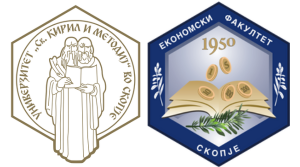Panel Discussion
Public Opinion 2.0: Challenges in the Digital Age and Possible Research Directions
Panel Overview
The concept of public opinion is undergoing a fundamental transformation. In an era marked by challenges such as digital transformation, social polarization, and the diminishing role of traditional democratic institutions and media as intermediaries in public debate, questions arise regarding the methods and necessary future directions for public opinion research. Public Opinion 2.0 is forming within a new digital environment characterized by decentralized content production, non-linear information circulation, and the growing influence of digital platforms.
In the Public Opinion 2.0 era, the speed of information dissemination facilitates disinformation and infodemics, which significantly impact democratic processes. The de-institutionalization of public debate mediators (e.g., media, political parties) coincides with discussions about new forms of exclusion, public opinion manipulation, and the real sources of political decisions. Public debate is becoming platformized and algorithmized, affecting the possibility of participation in public discourse — does this foster deliberation, polarization, radicalization, or perhaps “algocracy”?
Comprehensive analyses of Public Opinion 2.0 necessitate a cross-interdisciplinary approach that integrates a media studies perspective (media, technology, discourse) with a political science perspective (power, democracy, institutions).
The Significance of the Topic in the Conference Context:
Understanding the mechanisms of public opinion formation amidst digital transformation is crucial not only for political and social sciences but also for the future of business environments and economies. Public opinion, especially in the era of network communication and digital media, directly impacts consumer decisions, trust in institutions, and the investment and regulatory climate. Consequently, this panel aligns with the conference theme by
demonstrating that social and informational trends are an integral component in shaping the future – both in the context of democracy and the economy.
Project Foundations
The panel “Public Opinion 2.0: Challenges in the Digital Age and Possible Research Directions” emerged from international and interdisciplinary collaboration, rooted in two scientific projects. The primary collaborative initiative is COST (European Cooperation in Science and Technology) CA21129 – What are Opinions? Integrating Theory and Methods for Automatically Analyzing Opinionated Communication (OPINION). The proposed panel directly aligns with the objectives of Working Group 1 (Theory) and Working Group 2 (Tools), with participants and presenters being members of these groups. The second significant project underpinning this panel is the Jagiellonian University (Kraków, Poland) project “How to study public opinion in a digitalized world? Conceptualization – methods – techniques,” conducted within “The Excellence Initiative – Research University” program. This project has fostered closer scientific cooperation among researchers from the Central and Eastern European region, including North Macedonia.
Moderator: Anita Ciunova-Shuleska, Ss. Cyril and Methodius University in Skopje
Speakers:
Agnieszka Hess, Jagiellonian University, Krakow, Poland
Anna Bączkowska, University of Gdańsk, Poland
Agnieszka Stępińska, Adam Mickiewicz University, Poznan, Poland
Elena Negrea-Busuioc, National University of Political Studies and Public Administration, Bucharest, Romania
Kinga Adamczewska, Adam Mickiewicz University, Poznan, Poland
Roksana Gloc, Jagiellonian University, Krakow, Poland
Małgorzata Durmaj, Jagiellonian University, Krakow, Poland
Anna Kulma, Jagiellonian University, Krakow, Poland
